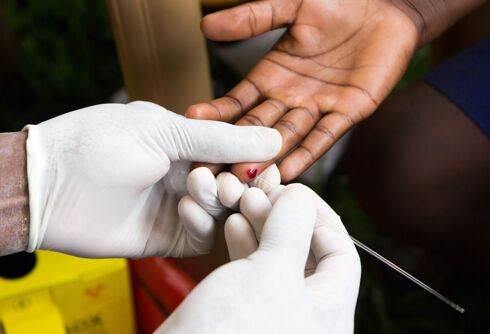Cuban voters have voted in favor of legalizing same-sex marriage and adoption by gay couples, despite opposition from evangelicals and anti-gay communists.
Roughly 67 percent of voters in the September 25 referendum supported the measures as part of updating the island nation’s four-decade-old “family code.” It’s unclear when the revised code will go into effect.
The newly reformed code will also allow surrogate pregnancies; give greater parental rights for grandparents, extended, and nontraditional families; outlaw various forms of child abuse; offer enhanced protections for women and elderly people targeted by violence; and forbid people from encouraging minors “not to fulfill their duties related to respect for and love of the homeland.”
The vote was noteworthy because the Cuban government has only held public referendums to shape its laws three other times since the country’s 1959 revolution. Though Cuba holds parliamentary elections every two years, only members of the state-run Communist party are allowed to run. This effectively prevents “outsider” candidates from pushing social reforms that aren’t already approved by the state party.
Never Miss a Beat
Subscribe to our newsletter to stay ahead of the latest LGBTQ+ political news and insights.
The vote was also noteworthy because right-wing evangelicals and communist factions helped defeat a similar proposal to legalize same-sex marriage back in 2018 and 2019. These groups also opposed Saturday’s gay marriage and adoption provisions, citing religious objections or discomfort with shifting gender identities, America’s Quarterly reported.
However, this time the reforms were publicly championed by Cuban President Miguel Díaz-Canel and the state Communist party in public speeches and advertisements encouraging voters to support the measures.
“Voting ‘yes’ is saying yes to unity, to the revolution, to socialism,” Díaz-Canel said in a televised address supporting the code revision.
Critics said Díaz-Canel used the vote to improve the country’s international image while distracting from its economic woes and its continued governmental crackdown against political dissidents. The country has had food and electricity shortages, worsened by the COVID shutdowns and U.S. economic sanctions.
The president and party’s support for the reforms weren’t altogether surprising considering that gay rights activism in the nation has been “channeled largely through the single-party system, rather than independent civil-society groups,” The Washington Post reported.
Even though other LGBTQ rights groups exist on the island, the only government-recognized group is the Cuban National Center for Sex Education (CENESEX), an organization that advocates for queer equality, familial acceptance, and HIV prevention. CENESEX is led by Mariela Castro, the niece of former Cuban dictator Fidel Castro. CENESEX has helped pass a law to help trans Cubans get gender reaffirmation surgery free of cost. Mariela Castro often leads the country’s annual pride parades as well.
Starting in 1965, Cuba imprisoned gay men, political dissidents, and others deemed unfit for military service in work camps known as Military Units to Aid Production (UMAPs) where, according to a 1967 report by the Inter-American Commission of Human Rights. They were “forced to work for free in state farms from 10 to 12 hours a day, from sunrise to sunset, seven days per week, poor alimentation with rice and spoiled food, unhealthy water, unclean plates, congested barracks, no electricity, latrines, no showers, inmates are given the same treatment as political prisoners,” which meant suffering routine abuse at the hands of guards.
Castro eventually took responsibility for the UMAP camps stating that he didn’t pay attention to them at the time because he was focused on fighting foreign enemies like the U.S. (which tried to topple him more than seven times).
In the 80s until 1993, the Cuban government quarantined HIV-positive people (mostly gay and bisexual men) in sanitariums where they were required to live for the rest of their lives, only leaving with supervision. American AIDS experts during the late ‘80s criticized this mode of “incarceration based on supposed future behavior” as “irrational” and “totalitarian.”
Cuba eventually decriminalized gay sex in 1979, and although Cuban law currently prohibits “discrimination based on sexual orientation in employment, housing, statelessness, or access to education or health care,” the international LGBTQ rights site Alturi.com said, “Nonetheless, societal discrimination based on sexual orientation or gender identity persists.”
Cuba’s one-party system still has laws restricting free press, public protests, and political organizing — all vital tools in securing LGBTQ rights. Cuba still detains political dissidents for the crimes of “public disorder,” “disrespect for authority,” and “pre-criminal dangerousness.”
Don't forget to share:















